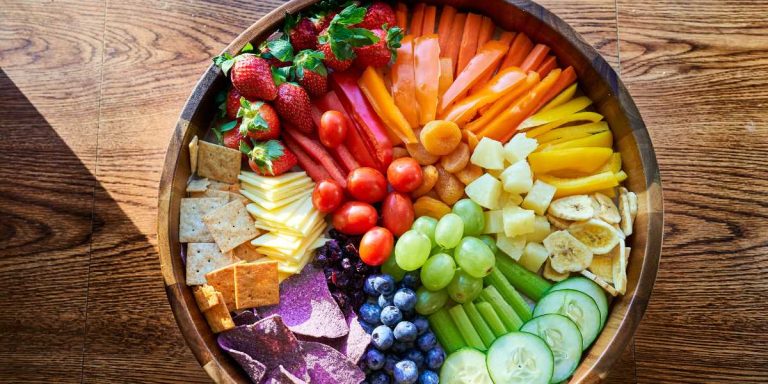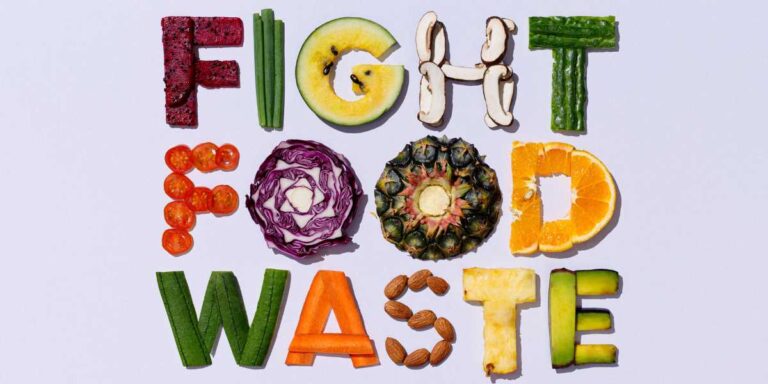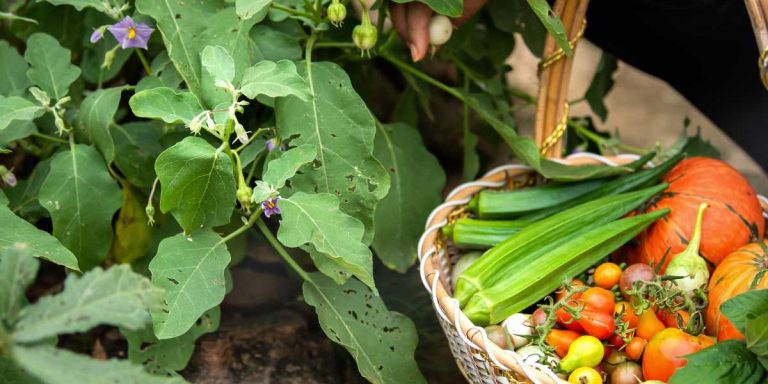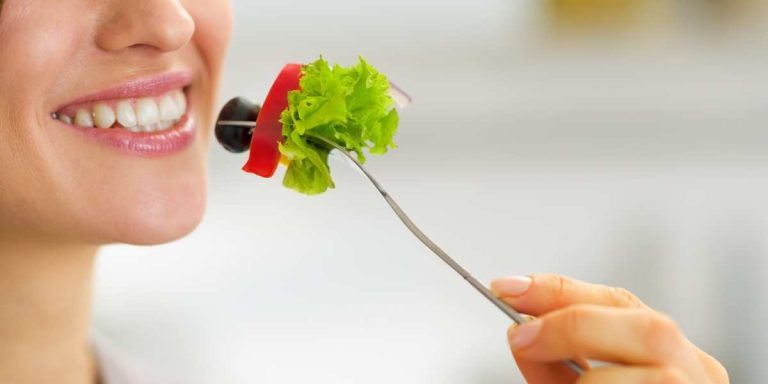Is Kombucha Good for You? Your Ultimate Guide to Homemade Kombucha
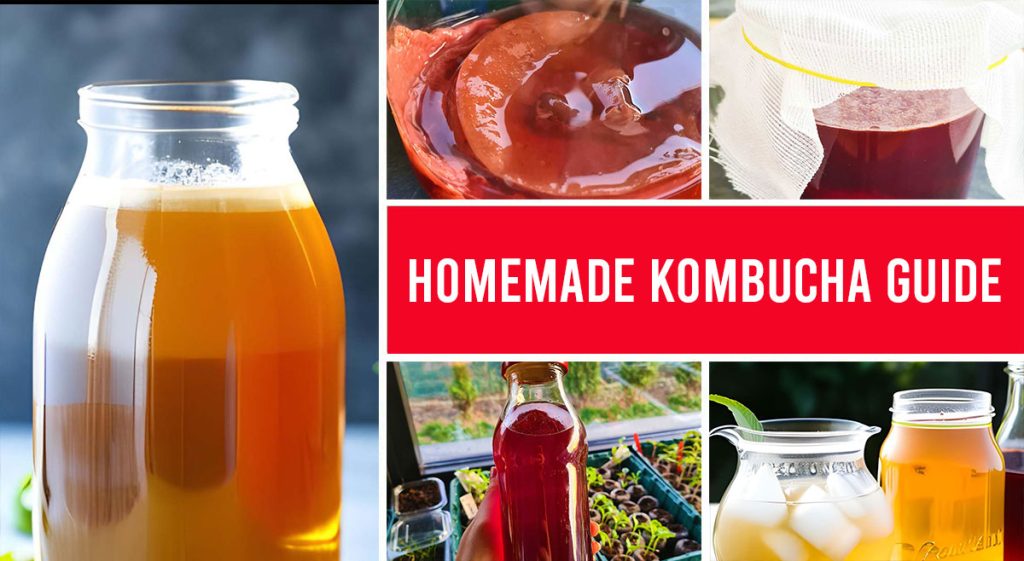
Is kombucha good for you? This fermented drink has taken over the world and for a good reason. In this article, you will find out everything you need to know about kombucha: what it is, how it is made, its benefits and how to start consuming it.
I’ve recently discovered that my microbiome is not in the best shape so I decided to add as many natural probiotics to my diet as possible. Fermented cabbage (homemade sauerkraut), milk kefir and kombucha being some of them.
I want to create this comprehensive kombucha guide to help you if you want to start this journey. I will also create a milk kefir guide soon and hopefully I will be able to get my hands on some water kefir as well. I hope this guide will help you start making your own kombucha at home because it’s so incredibly easy. This is a simple guide for beginners on everything kombucha. 😉
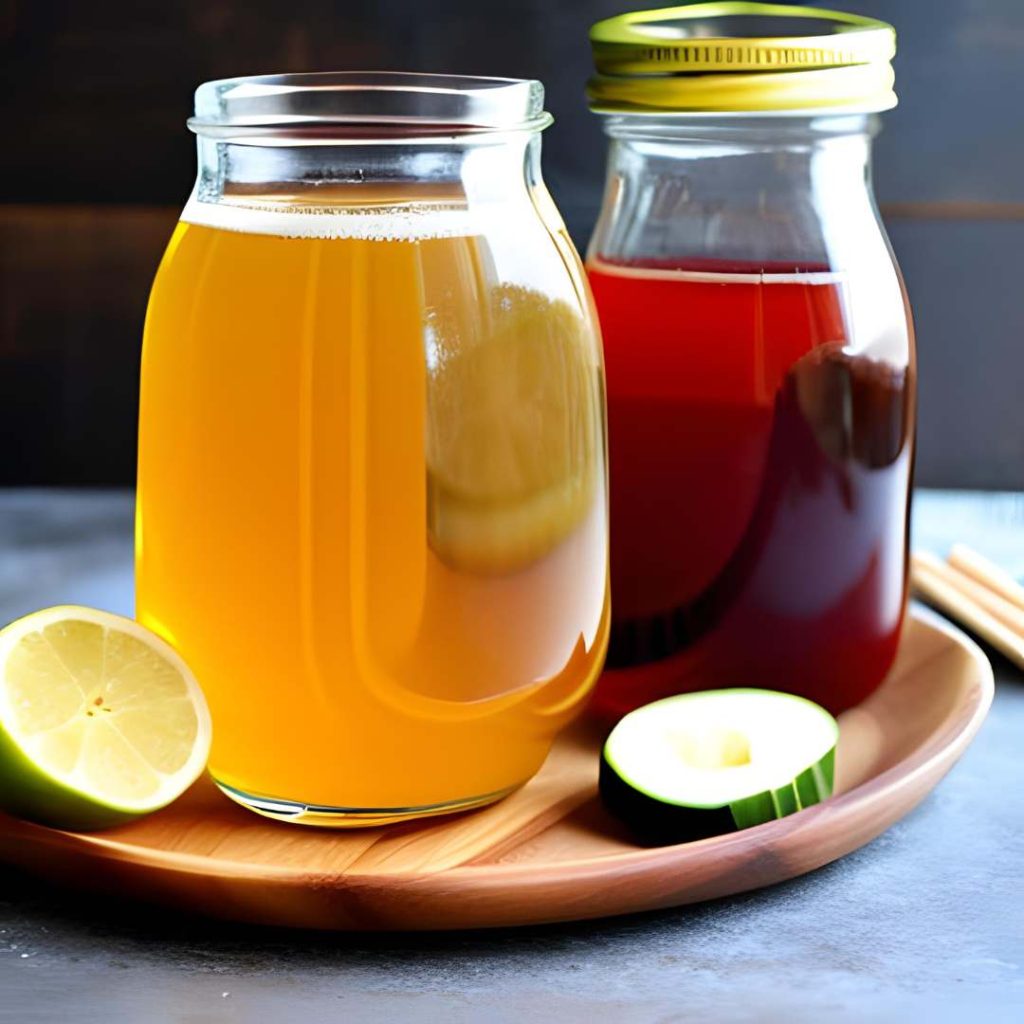
What is kombucha?
Kombucha is a fermented drink obtained by fermenting tea with the help of a colony of bacteria and yeast (also called “kombucha mother”). This drink has a long history, being consumed in Asia for over 2000 years. Kombucha has a sour, sweet and slightly effervescent taste.
About SCOBY
SCOBY is an acronym for “symbiotic culture of bacteria and yeast”, which translated means “symbiotic culture of bacteria and yeast”. It is a symbiotic culture of microorganisms that is used to ferment sweet tea and turn it into the fermented drink known as kombucha.
It is composed of several species of bacteria and yeasts that collaborate in the fermentation process. These microorganisms form a gelatinous film that floats on top of the drink during fermentation. This film can be used to start the fermentation of other drinks or to grow the SCOBY culture.
The main bacterial cultures in SCOBY are Acetobacter, Gluconacetobacter, Gluconobacter, Lactobacillus and Zygosaccharomyces. These bacteria and yeast work together to ferment the sweetened tea and produce kombucha. Each culture has an important role in the fermentation process and contributes to the aroma, taste and health benefits of kombucha.
The mother culture of bacteria and yeast is important for the kombucha fermentation process, because it transforms the sugars and other nutrients in the sweet tea into acetic acid, lactic acid and other compounds that give kombucha its specific taste and aroma.
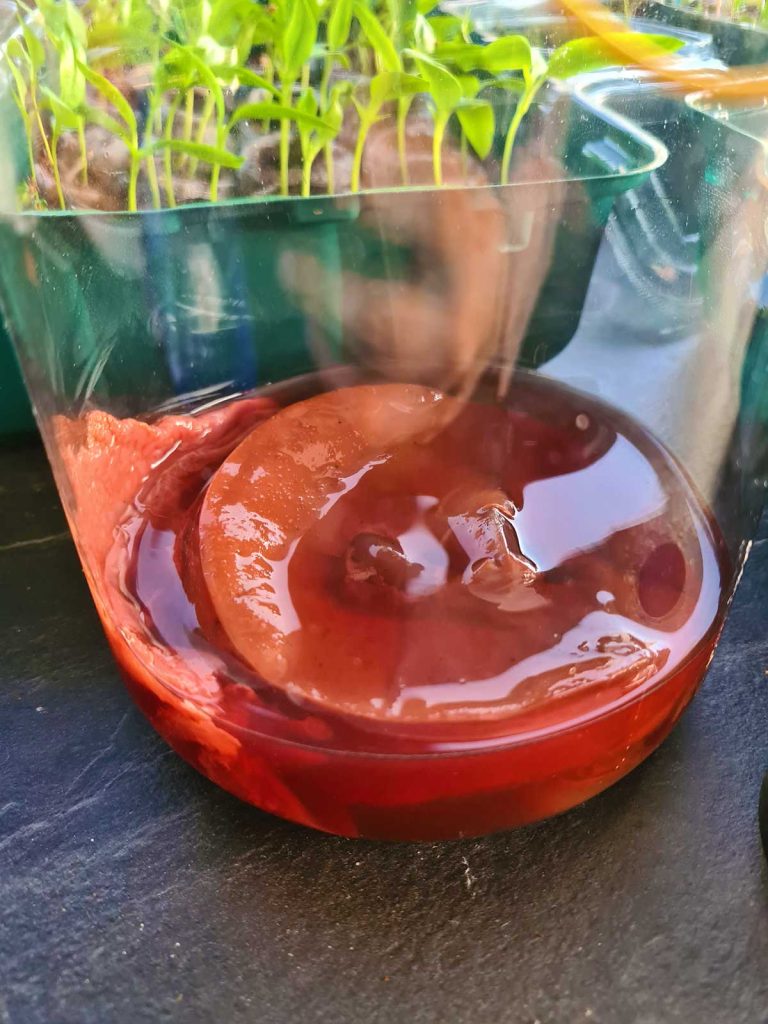
What are the ingredients in kombucha?
Ingredients for kombucha:
- black or green tea
- granulated sugar
- the water
- kombucha starter (previously fermented kombucha liquid or a scoby)
- probiotic bacteria and yeasts (from the kombucha starter or from the scoby)
- optional flavors (fruit juice, herbs, spices)
It is important to use quality ingredients to obtain a tasty and healthy kombucha. It is also recommended to use filtered or bottled water to avoid the presence of chlorine and other chemicals that can affect probiotic cultures.
Green tea or black tea for kombucha?
Both black and green tea can be used to prepare kombucha. Both types of tea offer essential nutrients and substances beneficial to the body, and the choice depends on personal preferences in terms of taste and aroma. Some people prefer black tea because it has a stronger and richer taste, while others prefer green tea because it is lighter and more subtle in taste. In any case, it is important to use quality tea, without flavors or additives, to ensure a healthy and high-quality fermentation.
I chose to make it with green tea and combine it with fruit tea made by me. I like both the color obtained and the taste.
Kombucha health benefits
Among the main benefits of regular kombucha consumption are:
- improving intestinal transit and eliminating harmful microbes
- mitigating the harmful effects of antibiotic administration
- elimination of constipation and anti-inflammatory and venous tonic effects
- helping in the treatment of rheumatism, gout and atherosclerosis and hypertension
- stopping migraines
- increasing immunity
- reducing anxiety and irritability
- adjuvant in the treatment of kidney and biliary stones
- adjuvant in the treatment of cancer
Kombucha in pregnancy
There is little research available on the effects of kombucha during pregnancy. Therefore, it is important to talk to your doctor before drinking kombucha during pregnancy. Although kombucha is generally considered safe for human consumption, its caffeine and acidity content can be problematic for some pregnant women. In addition, kombucha may contain traces of alcohol and is not recommended for women who
Kombucha in cancer
Currently, there is no evidence to suggest that kombucha can cure or prevent cancer. While some preliminary studies suggest that kombucha may have antioxidant and anti-inflammatory properties, more research is needed to fully understand its potential health benefits.
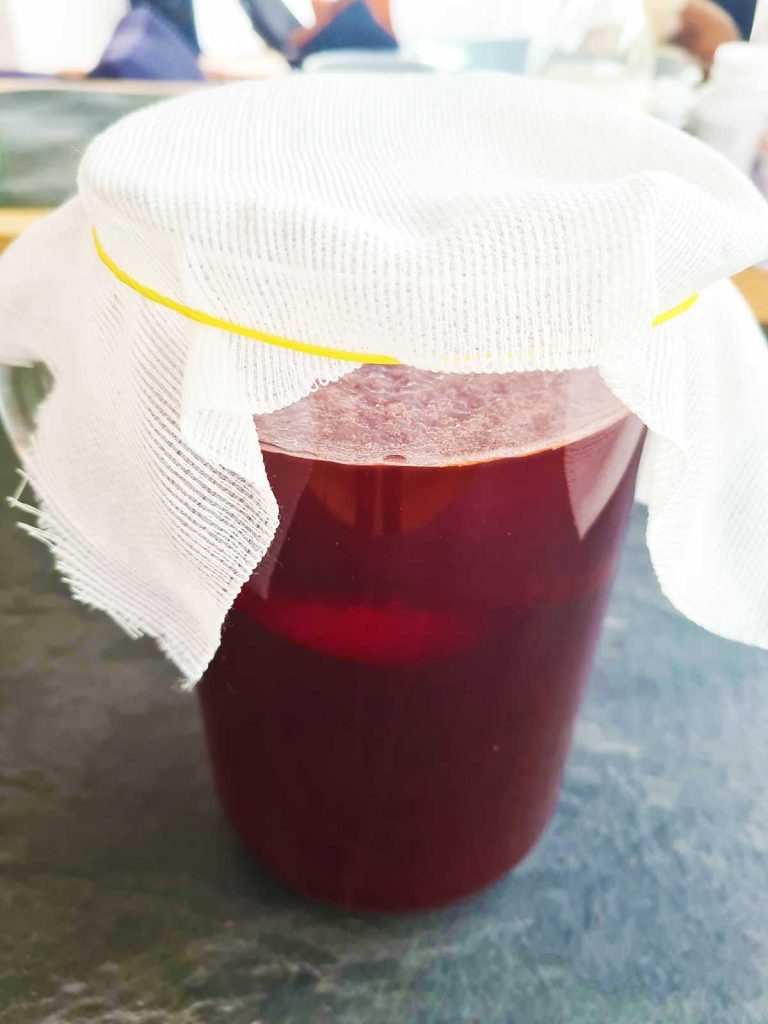
How to make kombucha at home – step by step
To make kombucha, you will need:
- kombucha SCOBY culture
- white sugar
- green or black tea
- starter liquid
- pot for boiling water
- a glass or porcelain jar
- rubber band or string
- linen or cotton cloth, gauze or paper napkin
- bottles
- wooden spoon
- plastic strainers (if tea bags are not used).
Basically, you boil the water, add the tea and sugar, then let the tea cool and add the starter liquid and the live culture in the jar. Then, it is left to ferment for 7-14 days, depending on the ambient temperature.
I use the following quantities:
- Scoby culture + 10% starter liquid
- 2 L of chilled tea at room temperature, prepared from 2 green tea bags and 2 Tablespoons of fruit tea mix (made by me from dehydrated fruits + hibiscus)
- 5 Tablespoons of white sugar
The first time after I received the SCOBY culture, it took a long time until the kombucha fermented, approx. 7 days. Once the kombucha chicken was formed on the surface, the process became faster. Now I divided the baby and the mother in two different containers in which I ferment at the same time. It ferments much faster in 4-5 days, which means that I can increase the amount of liquid, having a much too large culture for 2L of tea.
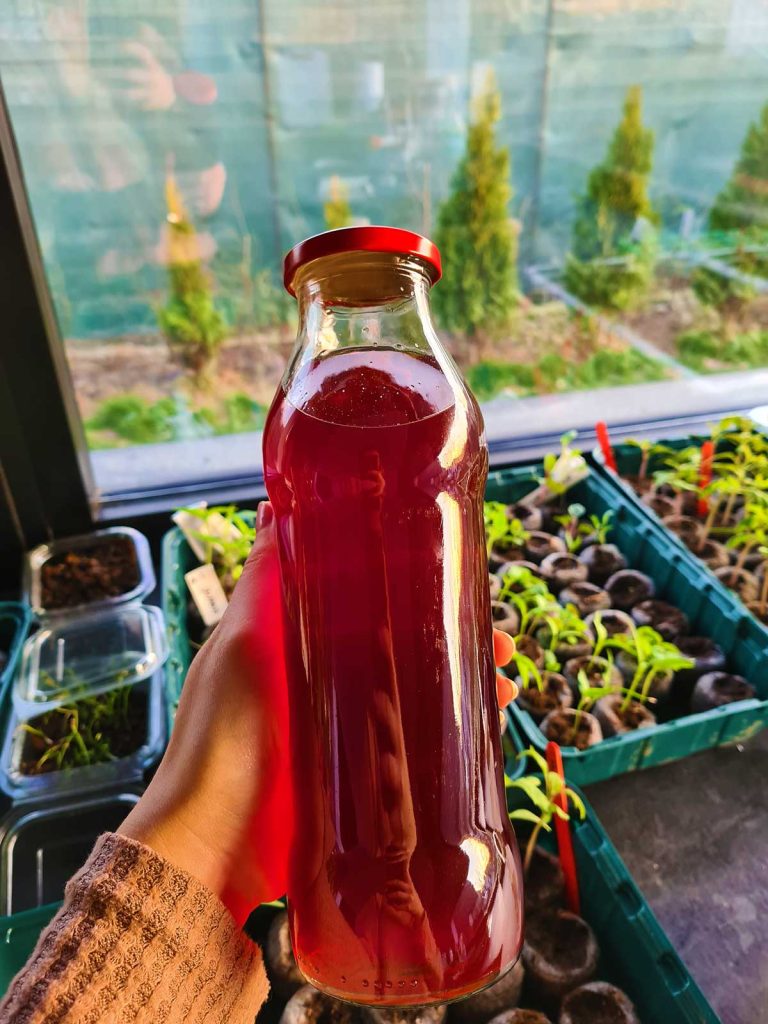
Tips to follow for homemade kombucha
- Ferment in a glass container, in a quiet and warm place. Avoid moving the container during the fermentation process. The ideal temperature is between 20-27°C. It does not necessarily need light, Avoid direct sunlight.
- During the fermentation process, a new kombucha culture (baby culture) slowly forms on the surface of the tea. Don’t worry if that thin film is strange or icky looking. It will thicken over time. The mother culture will float close to the surface of the container. This is how the kombucha culture multiplies. If it is large enough, you can use the baby SCOBY for a new series of kombucha.
- After several fermentations, the SCOBY can acquire a dark brown color. Then you can replace it with the baby SCOBY resulting from the previous fermentations. I throw the old SCOBY cultures into the compost.
- Never put the SCOBY in hot tea and DO NOT use metal utensils.
How to make kombucha less vinegary
Do not leave it to ferment too long. Once you start to smell like vinegar, you can taste. If it is suitable to taste, you can strain it into bottles and put it in the refrigerator to slow down the fermentation process.
Kombucha is a symbiotic food consisting of bacteria and yeast that transform sugar into CO2, organic acids and other components during fermentation. The initial sweet taste decreases as the sugar is decomposed, and the acidity increases due to the activity of bacteria. If you want a sweeter drink, ferment less, and if you want a more sour drink, ferment more. Through practice you will learn when to stop the fermentation to get the desired taste.
Second fermentation
The second fermentation of kombucha involves adding flavors or fruit juices to the fermented kombucha to improve its taste. This step can be carried out in a sealed container at room temperature for 1-3 days.
During this time, the bacteria and yeasts in the kombucha will consume the sugars from the added fruit juices and produce carbon dioxide, which will increase the carbonation level and add new flavors and aromas. It is important to take into account hygiene when preparing kombucha with the second fermentation and to use fresh and clean ingredients.
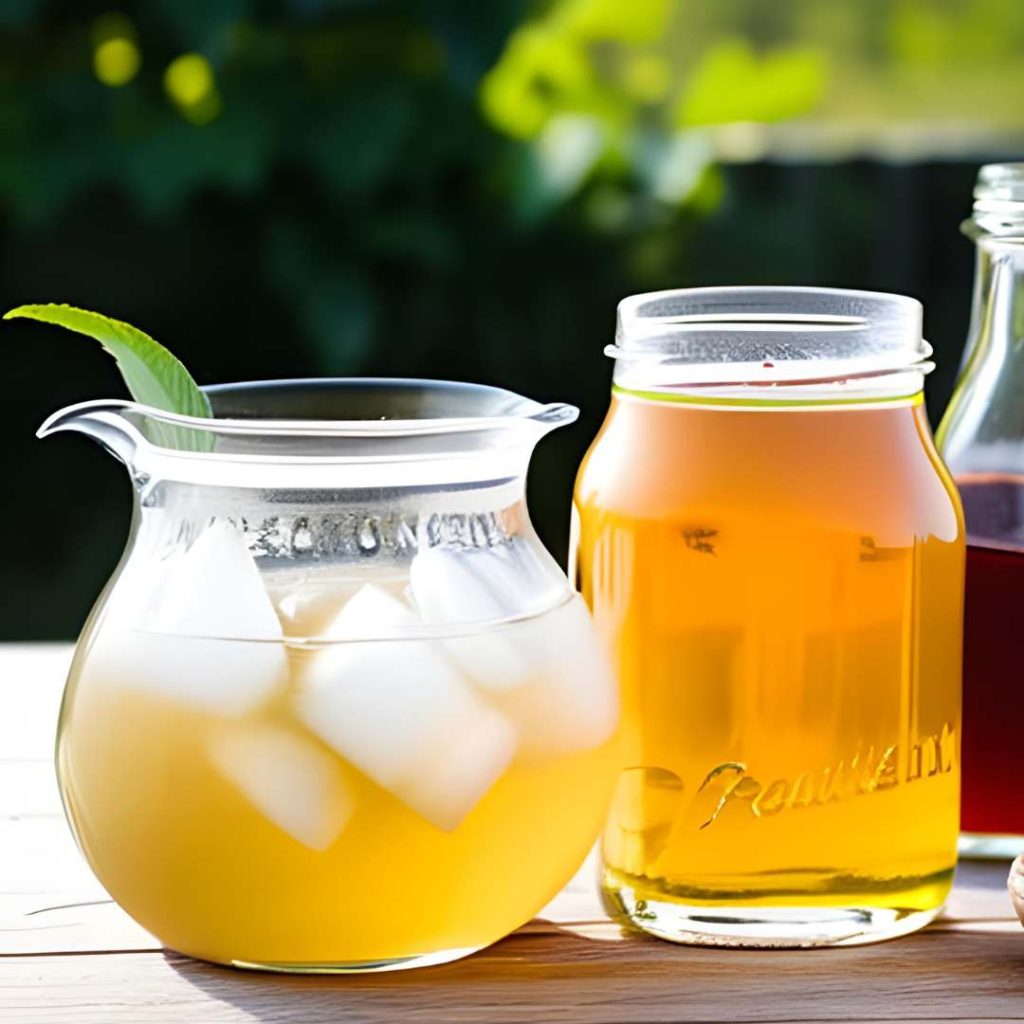
Kombucha flavors to try
There are a variety of flavors you can try when it comes to kombucha. Some of the most popular flavors are:
- Lemon – adds a refreshing and acidic note to kombucha.
- Ginger – adds a slightly spicy and warming note.
- Berries – add a sweet and fruity note.
- Mango – adds a tropical and sweet note.
- Passion fruit – adds an exotic and acidic note.
- Pear – adds a sweet and delicate note.
- Blueberries – add a fruity and acidic note.
These are just some of the kombucha flavors you can try. You can experiment with different combinations of ingredients to obtain personalized and unique flavors.
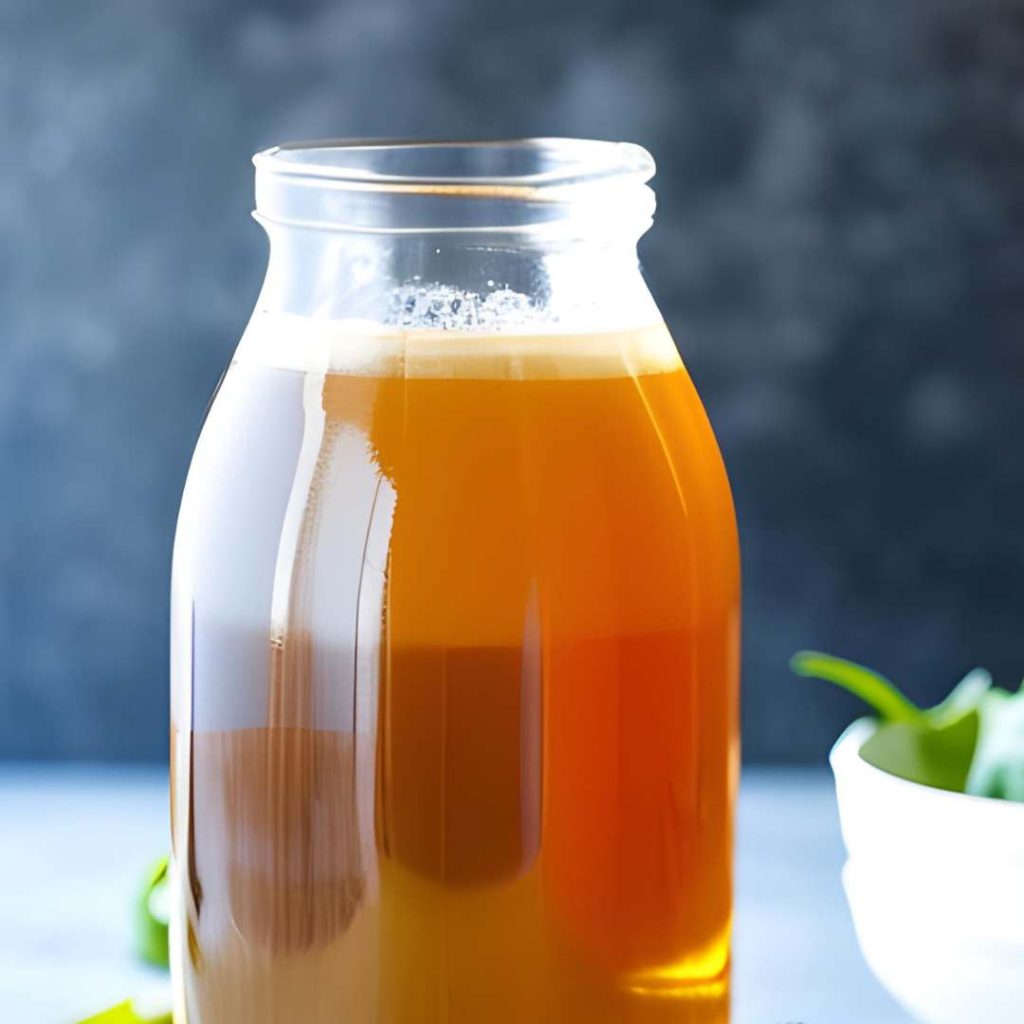
Frequently asked questions about kombucha
Yes, kombucha contains alcohol, but in small amounts. During the fermentation process, bacteria and yeasts transform sugars into acetic acid, carbon dioxide and ethyl alcohol. The concentration of alcohol in kombucha varies depending on the duration of fermentation and the fermentation conditions. In general, kombucha contains between 0.5% and 2% alcohol, but some variations can reach up to 3% or even more.
Although there is no research to support this, some people use kombucha to alleviate hangover symptoms, because the drink can help with hydration and contains some beneficial substances for the body.
Making homemade kombucha can be safe, but it is important to follow hygiene rules and use quality ingredients. It is also important to avoid contamination with harmful bacteria and to control the fermentation process to prevent excessive growth of acetic acid or other potentially harmful substances.
To reduce the risk of contamination, it is recommended to sterilize the equipment and use fresh tea and granulated white sugar. It is also recommended to avoid drinking kombucha that has been fermented for too long or that has an unusual taste or smell. In general, people with a weakened immune system or health problems should consult a doctor before starting to consume kombucha or any other home-fermented product.
In general, it is recommended to consume between 4 and 8 ounces (120-240 ml) of kombucha per day.
Are there health risks associated with drinking kombucha?
In general, kombucha is safe for human consumption, but it can be associated with some health risks, such as food poisoning, if it is not made in hygienic conditions or if it is consumed in large quantities.
Diarrhea is a potential side effect of drinking kombucha, although it is not common. Kombucha may contain higher levels of caffeine than other beverages, which can also cause diarrhea if consumed in excess.
If you experience diarrhea after drinking kombucha, it is recommended to stop drinking it until your symptoms subside. If your symptoms persist, you should consult a healthcare provider. To minimize the risk of digestive upset, it is recommended to start with a small amount of kombucha and gradually increase your intake as tolerated. It is also important to properly prepare and store homemade kombucha to reduce the risk of contamination by harmful bacteria or other pathogens.
Yes, kombucha is vegan and vegetarian, because it does not contain ingredients of animal origin.
If you make this, please leave a review and rating if you liked this recipe! ★★★★★

